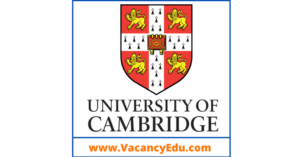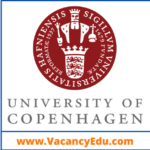University of Cambridge, United Kingdom invites online Application for number of Fully Funded PhD Degree at various Departments. We are providing a list of Fully Funded PhD Programs available at University of Cambridge, United Kingdom.
Eligible candidate may Apply as soon as possible.
(01) PhD Degree – Fully Funded
PhD position summary/title: EPSRC FIBE3 CDT PhD studentship with AtkinsRéalis: Enabling a natural capital approach to infrastructure transitions
This is a four-year (1+3 MRes/PhD) studentship funded through the Cambridge EPSRC Centre for Doctoral Training in Future Infrastructure and Built Environment: Unlocking Net Zero (FIBE3 CDT). The FIBE3 CDT aims to lead a transformation to net zero infrastructure through industry partner co-creation and co-delivery of an inspirational doctoral training programme for cohorts of emerging talents from diverse academic and social backgrounds. We will transform their potential by equipping them with the understanding, skills and qualities to collaboratively engineer the infrastructure that will unlock net zero through conducting world-class, cutting-edge and user-need focused cohort-based training and research to lead the design and implementation of the infrastructure net zero agenda in the UK. Further details can be found at https://www.net-zero-fibe-cdt.eng.cam.ac.uk/
This project develops a methodology to incorporate services from natural capital in infrastructure delivery strategies. The project identifies infrastructure services (e.g., climate resilience, mobility, carbon storage) and the potential for natural capital to provide these services alongside built infrastructure. The project will bridge existing approaches to identify and value services from natural capital with methodologies for national infrastructure assessment and delivery. The project combines a focus on systems thinking with a data-driven approach to quantify natural capital services and integrate them in infrastructure modelling platforms. These can support actions by stakeholders in the infrastructure systems to effect change and improved outcomes.
Deadline : 16 May 2025
(02) PhD Degree – Fully Funded
PhD position summary/title: iCASE studentship with Cambridge Bioscience BBSRC DTP programme
The opioid epidemic that has been claiming the lives of over half a million people in the US in the past decade is reaching the UK. There are still no effective treatments for addiction to opiate and other drugs such as cocaine and alcohol, thereby limiting our ability to help those who suffer from this debilitating psychiatric disorder, in part due to our lack of understanding of the cellular mechanisms mediating the transition from controlled to compulsive drug seeking and taking behaviour, the hallmark of substance use disorder. Among candidate mechanisms, those downstream of the dopamine D3 receptor, whose expression is profoundly exacerbated by exposure to addictive drugs, have long stood out. However, the role of this receptor in compulsive drug-seeking behaviour has never been determined due to the lack of appropriate procedures in non-human species. Capitalising on a novel animal model of compulsive heroin-seeking habits developed by the Belin lab, a new multi-million-pound partnership with Shionogi has recently been launched to test, among others, the therapeutic potential, and the associated neural signature, of a new highly selective dopamine D3 receptor on drug-seeking habits, compulsive drug seeking and escalation of drug self-administration in male and female rats. This programme of research at the interface of Behavioural neuroscience, neuropharmacology and molecular biology will provide a unique opportunity for a PhD student to acquire a deep knowledge of the psychological and neural basis of substance use disorders while also acquiring a wide range of experimental skills in a very supportive environment.
Deadline : 22 April 2025
View All Fully Funded PhD Positions Click Here
(03) PhD Degree – Fully Funded
PhD position summary/title: PhD Studentship – Developing a Novel Cotside Functional Brain Imaging System for Newborn Infants at high risk of Brain Injury.
This project aims to assess the functional integrity of the brain repeatedly at the cotside in neonates with acute brain injury by developing a novel portable dual-modality functional brain imaging system. The system combines the complimentary technologies of functional diffuse optical tomography (fDOT) and functional ultrasound (fUS). fDOT uses multi-channel near infrared light to produce high spatial and temporal resolution images of regional changes in cortical blood flow and oxygenation, reflecting brain activity throughout the cerebral cortex. fUS ultrasound waves are similar to CUS but using novel image reconstruction techniques and parallel computing technologies reaching 10,000 frames per second, enables very sensitive mapping of regional cerebral blood volume changes in deep cerebral structures. Combining these modalities will enable the first ever functional whole-brain imaging (cerebral cortex and deeper structures) at the cotside from newborn infants with acute brain injury.
Deadline : 30 April 2025
(04) PhD Degree – Fully Funded
PhD position summary/title: PhD Studentship – Electric furnace steelmaking (Fixed Term)
The University of Cambridge is offering a fully funded PhD studentship within the Structural Materials Group at the Department of Materials Science & Metallurgy. This EPSRC-funded ‘Industrial Doctoral Landscape Award,’ in collaboration with Tata Steel UK, focuses on advancing electric arc furnace (EAF) steelmaking to reduce the carbon footprint of UK steel production by recycling scrap steel.
This research will develop a high-throughput method for evaluating residual elements in EAF steel, particularly in automotive and packaging-grade alloys. Using thin-film deposition, the project will create miniaturised steel specimens with controlled variations of impurity elements (e.g., Cu, Ni, Sn, Sb, Mo) to assess their impact on microstructure and mechanical properties. The ability to generate thousands of unique compositions on a single sample will significantly accelerate alloy prototyping and testing.
Key objectives include:
Characterising subsurface microstructure using advanced microscopy and X-ray techniques
Developing a comprehensive database linking residual content, microstructural stability, and phase formation
Contributing to the development of resource-efficient, low-carbon EAF-compatible steels
Deadline : 16 May 2025
(05) PhD Degree – Fully Funded
PhD position summary/title: PhD Studentship – High Performance titanium alloy (Fixed Term)
The Department of Materials Science and Metallurgy at the University of Cambridge invites applications for a PhD studentship focused on developing a next-generation α+ß titanium alloy for aerospace applications. This industry-linked project, in collaboration with Rolls-Royce plc, will be based within the Structural Materials Group under the supervision of Prof. Nick Jones and Dr Nicole Church.
Ti6Al-4V has been the aerospace industry’s standard titanium alloy due to its strong balance of properties and low density. However, future aerospace designs demand materials with enhanced performance. Recent research suggests that reducing solute content can improve work hardening behavior while maintaining high yield stress, increasing energy absorption – an essential feature for aerospace applications. This project aims to deepen the understanding of how alloy composition influences properties and processability in solute-lean titanium alloys.
The research will involve:
- Alloy production via arc melting, hot rolling, and simulated forging trials
- Microstructural characterisation using electron microscopy (SEM & TEM), X-ray diffraction, and differential scanning calorimetry
- Mechanical performance assessment, including small-scale tensile testing and in situ testing at Diamond Light Source
Deadline : 16 May 2025
Polite Follow-Up Email to Professor : When and How You should Write
Click here to know “How to write a Postdoc Job Application or Email”
(06) PhD Degree – Fully Funded
PhD position summary/title: PhD Studentship – Intra-operative diagnosis of brain tumour margins
Gliomas are the commonest primary brain tumour and account for more average years of life loss than all common cancers. They are the commonest cause of cancer death in children and adults under 40 years old. There have been few new treatments for these patients making it imperative we optimise treatments we currently have.
Much of the improvement in survival with gliomas over the last 20 years has been down to surgery. We know surgery can kill more tumour than all other methods and that good resection of tumours can improve the efficacy of other treatments making improvements in surgery complementary to other improvements in treatment. Yet, surgery is the most toxic therapy. Our aim is to remove as much of the tumour as possible without causing neurological deficits.
We are beginning to understand which patients respond best to aggressive therapy and which do not need such aggressive surgery. Much of this is based on molecular subtypes predicting better oncological treatment responses. The problem is that we only find these subtypes some weeks after surgery. If we could diagnose the subtype of tumour intra-operatively, there may be an opportunity to tailor surgery based on these subtypes. Changing therapy for subtypes is an approach that has had significant impact on breast cancer survival.
This project will develop methods to look at how we can make intra-operative diagnosis in gliomas. It will focus on how we can obtain tissue intra-operatively and how we can analyse the tissue. Initial work will focus on assays for 2-hydroxyglutarate in tumour samples with IDH mutations. The project will involve working with scientsts and clinicians to obtain data from the operating theatre from patients with brain tumours.
Deadline : 30 April 2025
(07) PhD Degree – Fully Funded
PhD position summary/title: PhD Studentship – Reimagining Caribbean Collections: Unveiling Histories of Identity and Wellbeing through Material Culture
This interdisciplinary project explores over 3,000 pre-Columbian archaeological objects and extensive botanical specimens from the Caribbean, housed across the Museum of Archaeology and Anthropology (MAA) and the University Herbarium, both at Cambridge. Through participatory research with Caribbean communities, the successful candidate will investigate material culture, the shared knowledge of bush medicine and ceremonial uses of objects like the queen conch, and the broader contexts of wellbeing, identity, and ecological resilience across colonial and post-colonial Caribbean histories. Findings will support future reinterpretation and curation at MAA, contributing to more inclusive and community-driven approaches to heritage and collections.
This project will be jointly supervised by:
- Dr Jimena Lobo Guerrero Arenas (Museum of Archaeology and Anthropology)
- Dr Dacia Viejo-Rose (University of Cambridge)
- Professor Karen Brown (University of St Andrews)
- Sarah-Jane Harknett (Museum of Archaeology and Anthropology)
Deadline : 30 April 2025
(08) PhD Degree – Fully Funded
PhD position summary/title: PhD Studentship High Entropy Superalloys (Fixed Term)
Advanced materials for high-temperature applications are critical for improving efficiency and reducing emissions in energy and aerospace industries. While Ni-based superalloys have long been the standard, their limits are being reached. Refractory high entropy superalloys (RHEAs) offer a promising alternative, combining high melting temperatures with intermetallic reinforcement similar to Ni-based superalloys. However, several challenges hinder their implementation, including microstructural instability, the formation of detrimental intermetallic phases, and poor oxidation resistance.
This project builds on pioneering research in the Structural Materials Group to deepen the metallurgical understanding of RHEAs and develop alloys suitable for real-world applications. The research will involve alloy fabrication, processing, characterization, and performance testing using techniques such as scanning and transmission electron microscopy, diffraction methods (lab-based and synchrotron), mechanical property assessments, and thermo-physical evaluations.
Deadline : 16 May 2025
Click here to know “How to Write an Effective Cover Letter”
(09) PhD Degree – Fully Funded
PhD position summary/title: PhD Studentship HPS and UL: History & heritage of discovery of environmental change & interpretation of place in East England
This project will explore how local and global understandings of climate and the environment have been created in the East of England. It will investigate the sites, museum collections and academic research groups working in the twentieth century that have delivered new understandings of place and changing climate in this region. It takes advantage of several archival and museum collections of documents, instruments, specimens and sites to invite innovative research that investigates how deeper understandings of place in the east of England were developed. Working with the team of supervisors, the student will have the opportunity to shape a project working across two or three areas of focus, including 1) archival research on scientific studies of long-term environmental and climatic change; 2) fieldwork drawing on approaches from the humanities to establish a study of climate in place, examining one or more archaeological sites and communities in the east of England to explore how academic researchers changed understandings of place and worked with local communities at long-term research sites to relate different elements of climate, agriculture and landscape; 3) the treatment of climate through geological specimens, scientific instruments, and archaeological research and displays in museums, exploring how collections have been assembled, used, curated and interpreted to establish changing perspectives on place and time, and how climate and place have been represented. Its outcome will be the first historical account of how interdisciplinary scientific researchers in Britain applied themselves to the study of long-range environmental change.
Deadline : 16 May 2025
(10) PhD Degree – Fully Funded
PhD position summary/title: PhD Studentship in Autism Research
The Managers of the Autism Research Trust Fund invite applications for a fully funded PhD studentship in autism research in the Department of Psychiatry, commencing in October 2025. This studentship will be based in the Autism Research Centre under the supervision of Professor Simon Baron-Cohen and Dr Carrie Allison.
The ARC is a world-class centre that conducts basic research into the causes of autism as well as applied research related to interventions and support for autistic people and their families. Researchers are highly multidisciplinary based at Douglas House in Cambridge with approximately 50 staff and students working both in person and virtually across approximately 50 projects. The ARC is explicit about its values, which include a commitment to community engagement on all projects. See www.autismresearchcentre.com. We use state-of-the-art technology and methodologies in these investigations, including functional and structural magnetic resonance imaging, induced pluripotent stem cells (iPSC), whole genome sequencing, genome wide association studies, epidemiology, experimental psychology, psychometrics, gaze-tracking, and obstetrics.
We welcome applications from highly motivated and talented candidates interested in conducting innovative research in autism. The studentship is open to projects spanning a broad range of disciplines, including but not limited to any of the 12 programs in the ARC: perception and cognition, screening and diagnosis, neuroscience, education, genetics, mental health, environment, physical health, endocrinology, employment, epidemiology and the criminal justice system. Applicants are encouraged to propose their own research questions and methodologies within our basic or applied research programmes. The successful candidate will refine their project in collaboration with their supervisors, ensuring alignment with departmental expertise and resources.
Deadline : 30 April 2025
Connect with Us for Latest Job updates
(11) PhD Degree – Fully Funded
PhD position summary/title: PhD studentship in Egyptian Archaeometallurgy (Fixed Term)
This project aims to explore wider stories and connections within the British Museum collection by conducting the first detailed technological study of some of Egypt’s earliest metal objects found in funerary contexts. Using advanced non-invasive analytical techniques, the research will evaluate manufacturing methods, technological choices, and material selection behind metal vessels and (model) tools, as well as their role in funerary practices. Representing some of early Egypt’s most significant material culture, these assemblages remain poorly exploited from a museological perspective. Their holistic examination and interpretation through the lens of ‘object itineraries’ affords tremendous potential to understand their makers and owners, thus developing engaging narratives beyond their artistic appeal. Furthermore, this opens novel possibilities for museum-based research to examine interactions between early civilisations in the region through technological exchange. As a pilot study, metal objects from the mid-third millennium BCE Royal Cemetery of Ur, Mesopotamia, will be compared. This will support future museum exhibitions and collaborations telling new stories about these under-researched objects in the British Museum collection.
Deadline : 30 April 2025
Polite Follow-Up Email to Professor : When and How You should Write
(12) PhD Degree – Fully Funded
PhD position summary/title: PhD Studentship in mild traumatic brain injury
Current clinical pathways in the ED focus on immediate needs. For example, using a CT scan of the brain to decide whether a patient needs surgery urgently for bleeding, and do not take into account potential longer term problems. Reducing ED waiting time may be important for patients as symptoms may worsen in the noisy environment. In addition, the number of people attending EDs for all health issues is rising, leading to longer waiting times.
There is also growing appreciation that “mild” is a misnomer as these patients may have ongoing functional, symptomatic and cognitive deficits that may benefit from further management. Our failure to prognosticate in this group means those with persisting problems are often lost to the ongoing care they need, and a presentation to ED could be a potential opportunity for stratification of need and signposting to appropriate onward care.
Rapidly evolving technologies offer potential to change the clinical pathway in EDs and improve care of people who have sustained a mTBI. For example a machine learning algorithm developed to detect TBI lesions on CT (BLAST-CT, developed by our group in collaboration with academics at Imperial College London) has the potential to assist emergency physicians to identify patients with normal scans. Blood biomarkers offer the potential to aid both diagnosis and prognostication in mTBI in the Emergency Department (ED) setting. Understanding the potential clinical utility of these technologies requires an understanding of existing care pathways, how these are enacted in practice, any inadvertent consequences, challenges in adoption and acceptance by both clinicians and patients, and where the information provided by them would make the most difference to both clinical decision making and ultimately patient outcomes.
This project will aim to understand how implementation such technologies may effect pathways. This work will involve scoping of existing care pathways and the impact on mTBI patient experience, including the identification of care gaps and unmet need. It will take advantage of data collected as part of the NIHR EME funded study BRAINS-TBI (Biomarkers for RAtional Investigation for Neurological decision Support in TBI, Chief Investigator Newcombe, NIHR159241); a UK multi-centre study of >2000 patients with mTBI, as well as other linked datasets, and consider health delivery models that could incorporate such innovations and technologies into routine practice. Specific details of the PhD project will be determined by the student’s interests.
Deadline : 16 May 2025
(13) PhD Degree – Fully Funded
PhD position summary/title: PhD Studentship: Battery Materials
A PhD studentship is available to work on a collaborative project with Dr Israel Temprano and Professor Dame Clare Grey at the University of Cambridge, Dr Arnaud Demortière at LRCS in Amiens, France, and Dr Elixabete Ayerbe at Cidetec Energy Storage, San Sebastian, Spain. This project, funded by the ALISTORE European Research Institute, aims to provide a mechanistic understanding of the behaviour of aqueous-processed high-energy cathodes using advanced operando characterisation tools. The project is highly collaborative in nature and will involve travelling between the partners by the student.
Battery cathodes are typically fabricated by homogenising a mixture of active materials and conductive additives (such as carbon black) with binders (polyvinylidene fluoride being the industry standard), using N-methyl pyrrolidone (NMP). However, because of toxicity and stability issues, there is great interest in alternative aqueous-based high-energy cathode materials, the development of which could pave the way to lower-cost, environment-friendly, energy-dense battery cells. Reports on the performance of such materials exist in the literature, but an in-depth mechanistic understanding of this processing method is severely lacking.
The goal of this project is to address this lack of in-depth information using advanced operando techniques, providing a mechanistic understanding of the effect of aqueous processing on the stability, degradation mechanisms, particle expansion, etc. of high-nickel NMC cathodes, and relating these to electrode performance. The study will include aspects of electrode fabrication, mechanical properties, electrochemistry, mechanistic understanding of electrode stability and degradation, effect of microstructure on performance.
Deadline : 20 April 2025
(14) PhD Degree – Fully Funded
PhD position summary/title: PhD Studentship: Light-driven carbon dioxide valorisation
The overall aims of this Leverhulme Trust-funded project are to valorise carbon dioxide and set the path towards viable technologies for defossilisation of the energy sector and chemical industry. To do so, the Optical Nanomaterials Group at the University of Cambridge has developed sunlight absorbers based on nanoparticles of earth-abundant magnesium,[1-2] and has demonstrated that they can be coupled with catalytically active metals to drive chemical reactions with light [3-4].
The specific goals of this PhD project are to 1) understand how plasmonic Mg nanoparticles and their surface oxide layer attract and activate carbon dioxide under solar light irradiation and 2) develop Mg-based catalytic platform for light-assisted valorisation of greenhouse gases. The PhD student will focus on colloidal synthesis of Mg-based catalytically active plasmonic nanoparticles, their characterisation, and investigation of photocatalytic properties in a range of industrially relevant gas phase reactions.
In their first year, the PhD student will be trained by a team consisting of a project-specific PDRA as well as Prof. Ringe and Dr Lomonosov (senior research associate in the group), towards gaining technical independence in their second year. They will then design catalytic and characterisation experiments that test the ability of catalytically active plasmonic nanoparticles towards low temperature, sunlight-assisted carbon dioxide valorisation reactions. Potential collaborations with other groups and industry will be encouraged as they allow for a broader training and enhance the impact of the research findings.
Deadline : 1 July 2025
(15) PhD Degree – Fully Funded
PhD position summary/title: Sigrid Rausing MIASU PhD Studentship in the Social Anthropology of Inner Asia
Applications are invited for the Sigrid Rausing MIASU PhD Studentship in the Social Anthropology of Inner Asia. The studentship, funded by a generous donation from the Sigrid Rausing Trust, will cover the University Composition Fee (tuition fees) and maintenance at the home fee rate. Applications from international students are welcome. Whilst we endeavour, where possible, to award full studentships, international students may be required to cover the fee gap between the home and overseas fee rates. The studentship is available for full-time students only and normally tenable for three years.
Deadline : 30 April 2025
(16) PhD Degree – Fully Funded
PhD position summary/title: EPSRC FIBE3 CDT MRes+PhD in Future Infrastructure and Built Environment: Unlocking Net Zero
We have funding for a number of 1+3 MRes/PHD studentships, in collaboration with industry, as part of our EPSRC Centre for Doctoral Training in Future Infrastructure and Built Environment: Unlocking Net Zero (FIBE3 CDT), under the four following themes:
-Current and disruptive technologies
-Circularity and whole life approach
-Al-driven digitalisation and data
-Risk-based systems thinking and connectivity
Deadline : 16 May 2025
(17) PhD Degree – Fully Funded
PhD position summary/title: Centre for Climate Repair Studentship: Protecting Glaciers – Non Physical Barriers Seabed Curtains
With ice in polar regions disappearing at record rates it is important to investigate potential options to keep land-based, glacier ice on land whilst greenhouse gas levels are reduced; not just emissions, but atmospheric levels. A number of glaciers, including the large Thwaites glacier in Antarctica, are at risk of increasing slippage and loss due to warmer water finding its way to the grounding line at the toe of the glacier. The warming of deep saline water currents is increasing the rate of melting of these kinds of glaciers, and thereby increasing the risk of higher rates of irreversible sea level rise.
This project will involve collaboration with the University of Lapland, Aker Solutions (an engineering consulting company based in Norway with a UK office), and a number of other universities who are looking at the possibility of creating physical barriers to impede the flow of deep saline, warm water encroaching upon the grounding line of glaciers. However, this research project will look at different options for reducing the rate of supply of warm water to the base of glaciers.
This project will explore how the creation of bubble curtains or pumped flow might reduce the rate of melting of glaciers. Bubble curtains are already used to contain the debris created in the construction of wind turbines but have not been used in the context of reducing the rate of supply of warm deep saline water to the grounding line of glaciers. Fluid curtains are also used to disrupt exchange flows in other applications, for example overhead air curtains in the doorways of retail environments in high summer to reduce air-conditioning loads.
Deadline : 16 May 2025
(18) PhD Degree – Fully Funded
PhD position summary/title: Centre for Climate Repair Studentship: Protecting Glaciers – Melting and flow through snowpack
The melting of glacial firn occurs at very large length scales, across more than 100km inland from the margin of the Greenland ice sheet. The resultant meltwater ultimately makes its way from the melt region to the ocean either over the glacial surface, or funnelled through moulins and crevasses to the base of the ice sheet where it significantly enhances the sliding speed particularly early in the melt season. As the meltwater percolates through the porous firn it leads to high-permeability pathways which promote flow, and further localise melting. This process occurs in the small pore spaces of the firn, but also at larger scales in the form of rivulets, tributaries and streams which form on the glacial surface. The feedback between melting and flow leading to localisation may ultimately lead to meltwater carving its way through the glacier.
This project would combine laboratory experiments on the melting of idealised porous media with larger scale numerical simulations of the Greenland ice pack. First, warm water will be rained onto a porous matrix of pre-frozen together glass beads on a slope to examine how the flow of the distributed water becomes channelised as the connections between beads opens. Subsequent experiments will utilise crushed ice to examine the flow, melting and hence focusing with initially distributed flow down a slope. Finally, these experiments will be complemented by catchment-scale modelling of melting and flow using Basilisk, and coupled to a hybrid parameterisation of turbulent flow, dissipation and heating, and hence melting in supraglacial river networks. The results will be used to ask how either texturing the surface of the ice, or providing obstacles to channelised flow, might limit drainage to the bed and hence limit ice motion towards the terminus and ocean.
Deadline : 16 May 2025
(19) PhD Degree – Fully Funded
PhD position summary/title: Centre for Climate Repair Studentship: Ice Thickening – Freezing flow through snow
How far does water spread through cold snow? This question is fundamental to understanding the surface hydrology of Greenland, the infiltration of seawater into fractured ice shelves, and the feasibility of flooding snowpack for Arctic refreezing. As water flows through cold snow, the water freezes, shrinking the pore space, and restricting the water flow, until eventually everything is frozen in place. This project would investigate flow in a porous medium, including phase change, from an experimental and numerical perspective.
Initial experiments in the DAMTP Temperature Controlled Laboratory will quantify the spreading and freezing that occur as cold water flows through pre-cooled glass beads in a straight duct. We will then progress from uniform glass beads to artificial snow. Further experiments will look at the impact of warm and/or salty water, where snow is expected to initially melt, before refreezing as the water cools. In tandem, numerical simulations of the process will be developed, calibrated to match experimental results. The numerical model will be used to extend from 1D flow to the radially spreading case.
Deadline : 16 May 2025
How to increase Brain Power – Secrets of Brain Unlocked
(20) PhD Degree – Fully Funded
PhD position summary/title: Centre for Climate Repair Studentship – Protecting Glaciers – Physical barriers Sea Bed Curtains
This PhD project stems from a novel idea as to whether giant underwater curtains could slow ice-sheet melting.
With ice in polar regions disappearing at record rates it is important to investigate potential options to keep land-based, glacier ice on land whilst greenhouse gas levels are reduced; not just emissions, but atmospheric levels.
A number of glaciers, including the large Thwaites glacier in Antarctica, are at risk of increasing slippage and loss due to warmer water finding its way to the grounding line at the toe of the glacier. The warming of deep saline water currents is increasing the rate of melting of these kinds of glaciers, and thereby increasing the risk of higher rates of irreversible sea level rise.
This project will involve collaboration with the University of Lapland, Aker Solutions (an engineering consulting company based in Norway with a UK office), and a number of other universities looking at the possibility of creating physical barriers to impede the flow of deep saline, warm water encroaching upon the grounding line of glaciers. The concept involves the installation of buoyant flexible curtains tethered to the ocean floor in front of glaciers.
Deadline : 16 May 2025
(21) PhD Degree – Fully Funded
PhD position summary/title: Centre for Climate Repair Studentship – Methane Mitigation: Catalysts
There is an urgency to mitigate methane due to its high heat trapping potential being 84 times more than that of carbon dioxide. This is especially challenging now since most methane gases are released in small doses over large areas of natural wetlands and thawing permafrost. Current methane mitigation methods rely on high temperature processes, and this is not feasible and not efficient if deployed near natural methane sources.
With the advancements in renewable technologies, it has become attractive to utilize these ‘free’ electrons to tackle problems related to sustainability such as that mentioned above. In this studentship, you will engineer nanostructures and investigate catalytic properties under charge modulation for methane removal. You will determine the effects of charge application, methane concentration, different modes of perturbation, etc. with the objective of developing an active material. My group specializes in coating and thin film methods and catalytic systems, and the big picture goal is to find an alternative material that is just as active as expensive precious metals such as palladium and platinum, the two best thermal methane oxidation catalysts in industry.
Your work will include both exciting proof of concept studies and wider exploratory studies related to sustainability applications. The advancements you make will have a major impact on UK’s pursuit for decarbonization. Throughout the studentship, we will develop the research objectives over time, with the central theme focusing on engineering interfaces. You will have the opportunity to work with world-class experts at Cambridge and at other national and international institutions.
Deadline : 16 May 2025
(22) PhD Degree – Fully Funded
PhD position summary/title: Centre for Climate Repair Studentship – Direct Air Capture – Process modelling and scaling up material production
We face a climate change crisis, and it is now accepted that we not only need to dramatically reduce our greenhouse gas emissions, but that we also need to remove greenhouse gases from the atmosphere. The Forse Group in the Yusuf Hamied Department of Chemistry are working on “direct air capture” (DAC), an approach where sponge-like materials are used to capture carbon dioxide directly from the atmosphere. The traditional sponge materials for this process have issues including poor long-term stability and/or the need for very high temperatures (up to 900 ºC) to regenerate the sponges for reuse.
To tackle these issues, Professor Scott’s group in the Department of Engineering have been working on various novel carbon capture processes, from the material through to the process scale. The power required by a DAC depends on the both the “sponge” and how it is integrated into a process, e.g. low capacity can be compensated for by a shorter cycle, high energy requirements can be offset by energy recovery strategies. Therefore, the process and material must be evaluated simultaneously. DAC is limited by the energy input needed to regenerate the sponge. Using heat forces the process to use much more energy than is needed. The sponges developed offer unique opportunities to electrify the DAC process either through joule heating, or via electromediated desorption. However, the route to large scale utilisation still needs to be fully explored. To understand how best to deploy new carbon sponges in a real-world direct-air capture process, process modelling and optimisation work is required. A process modelling PhD studentship, jointly supervised between the Engineering and Chemistry Departments will seek to answer the following questions:
Deadline : 16 May 2025
About The University of Cambridge, United Kingdom – Official Website
The University of Cambridge is a collegiate research university in Cambridge, United Kingdom. Founded in 1209 and granted a royal charter by Henry III in 1231, Cambridge is the second-oldest university in the English-speaking world and the world’s fourth-oldest surviving university. The university grew out of an association of scholars who left the University of Oxford after a dispute with the townspeople. The two English ancient universities share many common features and are often jointly referred to as Oxbridge.
Cambridge is formed from a variety of institutions which include 31 semi-autonomous constituent colleges and over 150 academic departments, faculties and other institutions organised into six schools. All the colleges are self-governing institutions within the university, each controlling its own membership and with its own internal structure and activities. All students are members of a college. Cambridge does not have a main campus, and its colleges and central facilities are scattered throughout the city. Undergraduate teaching at Cambridge is organised around weekly small-group supervisions in the colleges – a feature unique to the Oxbridge system. These are complemented by classes, lectures, seminars, laboratory work and occasionally further supervisions provided by the central university faculties and departments. Postgraduate teaching is provided predominantly centrally.
Cambridge University Press, a department of the university, is the oldest university press in the world and currently the second largest university press in the world. Cambridge Assessment, also a department of the university, is one of the world’s leading examining bodies and provides assessment to over eight million learners globally every year. The university also operates eight cultural and scientific museums, including the Fitzwilliam Museum, as well as a botanic garden. Cambridge’s libraries, of which there are 116, hold a total of around 16 million books, around nine million of which are in Cambridge University Library, a legal deposit library. The university is home to, but independent of, the Cambridge Union – the world’s oldest debating society. The university is closely linked to the development of the high-tech business cluster known as ‘Silicon Fen’. It is the central member of Cambridge University Health Partners, an academic health science centre based around the Cambridge Biomedical Campus.
Disclaimer: We try to ensure that the information we post on VacancyEdu.com is accurate. However, despite our best efforts, some of the content may contain errors. You can trust us, but please conduct your own checks too.
Related Posts
- PhD Degree (20)-Fully Funded at Ghent University, Belgium

- PhD Degree (22) -Fully Funded at NTNU, Norway

- PhD Degree (05) -Fully Funded at Aalto University, Finland

- PhD Degree (20) -Fully Funded at Luxembourg, Luxembourg

- PhD Degree (23) -Fully Funded at University of Copenhagen, Denmark

- PhD Degree (31) -Fully Funded at University of Southampton, England

- PhD Degree (24 )-Fully Funded at ETH Zurich, Switzerland

- PhD Degree (13)-Fully Funded at Karolinska Institute, Sweden

- PhD Degree (11) -Fully Funded at Cranfield University, England











